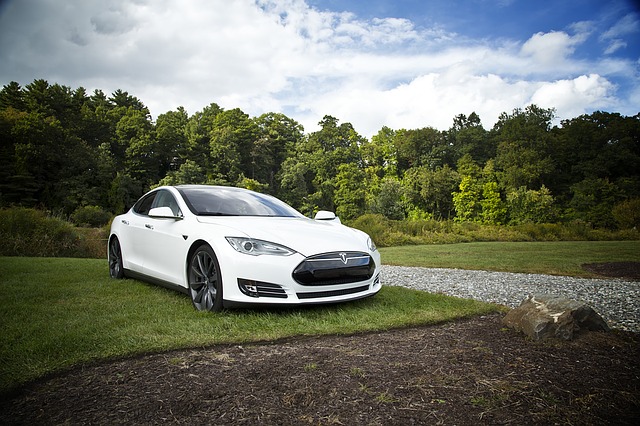
The dawn of the 21st century has witnessed the rise in the automotive industry. What used to be a lingering debate between diesel and petrol engines has now shifted to hybrid and electric cars. Latest UK industry figures show a remarkable increase of 110% in the sales of electric vehicles in January 2019. The petrol-electric hybrid sales rose by 38.3%.
With car buyers placing energy-efficiency at the top of their list, the need to find eco-friendly, fuel-efficient vehicles continues to grow. Even though fuel prices have dropped, the impact of auto emissions on the environment is still a major concern. The problem with many first-time buyers is that they don’t quite grasp the difference between hybrid and electric cars available in the market.
What is an electric car?
As the name suggests, it refers to any vehicle that derives all or part of its power from electricity. Commonly known as EV (electric vehicle), they are powered by a battery that is charged by an external electric source. As the cost of solar power is rapidly declining, various auto manufacturing companies including Toyota, Tesla, and Nissan are focussing on producing more models.
Electric vehicles utilize regenerative braking, a technology based on harnessing the energy released during braking, something that is wasted in conventional gas-powered cars. Electricity is generated to recharge the battery, allowing the vehicle to run longer. This is beneficial especially when braking is more frequent.
What are hybrid cars?
As the name suggests, a hybrid car combines technologies associated with both a traditional gasoline-powered car and electric vehicle. Like EVs, hybrid cars offer obvious benefits such as lower CO2 emissions and operating costs than conventional gas-powered automobiles.
A hybrid uses an internal combustion engine like the ones in ordinary cars, but they also have an electric motor and rechargeable battery pack. The battery in a hybrid car has a considerably lower range than an EV. Their electrical capacity is designed to supplement petrol driving in order to improve fuel efficiency. For this reason, they are considered an intermediary option as manufacturers are shifting from fossil fuels to renewable energy sources.
Hybrid vs. electric
Welcome to the ongoing debate between hybrid and electric cars. With the numerous concerns that consumers have, read on to get an in-depth analysis of both. You’ll be better informed when it’s time to buy a new set of wheels.
Cost of fuel
EVs and hybrids both cost almost 20% more than the traditional gasoline-run automobiles. However, manufacturers have implemented various aspects of technology making them more fuel efficient. Both have a battery that can be recharged, but the significant difference between the two cars is their fuel type. Hybrids run on both gas and electric, so they are more influenced by the fluctuating prices of petrol.
When it comes to fuel costs, electric vehicles have a less impact on your wallet. Every time you charge your car at home, it adds to your energy bill. But on average, it is comparatively less than filling up your gas tank. This is due to the following reasons:
-
Electricity prices are considerably lower than gasoline prices on a per-mile basis
-
They tend to fluctuate less than petrol prices
-
Electricity can be generated through multiple cheaper sources such as solar, wind, or hydropower. For many conscious car owners, EVs and solar panels are a match made in heaven. They help to reduce charging costs considerably.
Fuelling flexibility
While EVs allow you to become energy independent, they can be driven for a limited range. Depending upon the model, it typically varies between 60 to 150 miles, except for the list toppers. These include the 2018 Chevrolet Bolt (238 miles) and the more expensive Tesla models (295+ miles). Therefore EV owners should know where the next charging station is as they are not as commonly available as gas stations. Remember that recharging will take considerably more time than filling up the gas tank. This can be around 8 hours or more unless you have access to a quick-charging station.
On the other hand, hybrids provide flexible fuelling options. They switch between electric and gasoline power automatically. The dual power source proves advantageous for those who frequently travel long distances, especially as petrol pumps are more conveniently available. And also because EVs tend to run out of charge quicker than a hybrid would run out of both electric power and gas. In general, hybrids give higher mileage than either an EV or the traditional petrol-only counterparts.
Maintenance costs
Maintenance costs are a significant concern for car owners, especially since both are at the risk of battery degradation. Replacing the complex electric battery can be costly. Hybrids, unfortunately, must also endure the same maintenance issues associated with typical gas-powered vehicles, albeit at a lower rate. Common upkeep concerns such as changing the engine oil, transmission fluid, and belt need to be done regularly.
Even though these costs are not relevant to EVs, they have those typical maintenance expenses associated with any other cars such as tire change and insurance. Note that insurance premiums for some EV can cost up to 45% more than their conventional counterparts. One of the reasons for this is the cost of repairs. While an EV has fewer moving parts, some components like the battery are expensive to replace if damaged. Another reason is the limited availability of technicians that know how to repair electric and hybrid cars.
Resale value
Car owners generally consider the resale value of any automobile they purchase. So when it’s time to sell these cars for cash, you need to understand that new automotive technology is still emerging. Previously, consumers knew that their vehicle wouldn’t get outdated in 5 years. With electric cars, even though consumers are saving on running and maintenance costs, they are depreciating much faster than petrol, diesel or hybrid vehicles.
EVs retain only 43% of value after 5 years when compared to 53.7% for hybrids and 55.2% for petrol cars. This is because EVs are growing in demand and popularity due to technological advancements and plummeting battery prices. As they just keep outdoing themselves, what is once state-of-the-art soon becomes less valuable. Just like smartphones in the electronic industry, people demand only the latest and the best. However, Tesla continues to be the exception. This is because of their long driving ranges, well-developed charging networks, and software updates that enhance the automobile’s performance continuously.
What’s your choice?
Ultimately, when choosing between buying a hybrid or electric vehicle, it all comes down to personal preference, your driving needs, and lifestyle. For those who have a daily long commute, a hybrid offers the flexibility of a gasoline car while utilizing green technology. On the other hand, an EV is desirable for shorter trips. Weigh all your options and do all the research before heading down to the nearest dealership.










![Watch Video Now on xiaohongshu.com [以色列Elevatione perfectio X美容仪 perfectio X 全新仪器黑科技了解下]](https://www.techburgeon.com/wp-content/uploads/2019/07/perfectiox-singapore-150x150.jpg)
